Gugu Mbatha-Raw: ‘True equality is being able to do anything and everything’
As she stars as a beauty queen in ‘Misbehaviour’, Gugu Mbatha-Raw speaks to Annie Lord about #TimesUp, Harvey Weinstein, and how there are multiple ways to resist

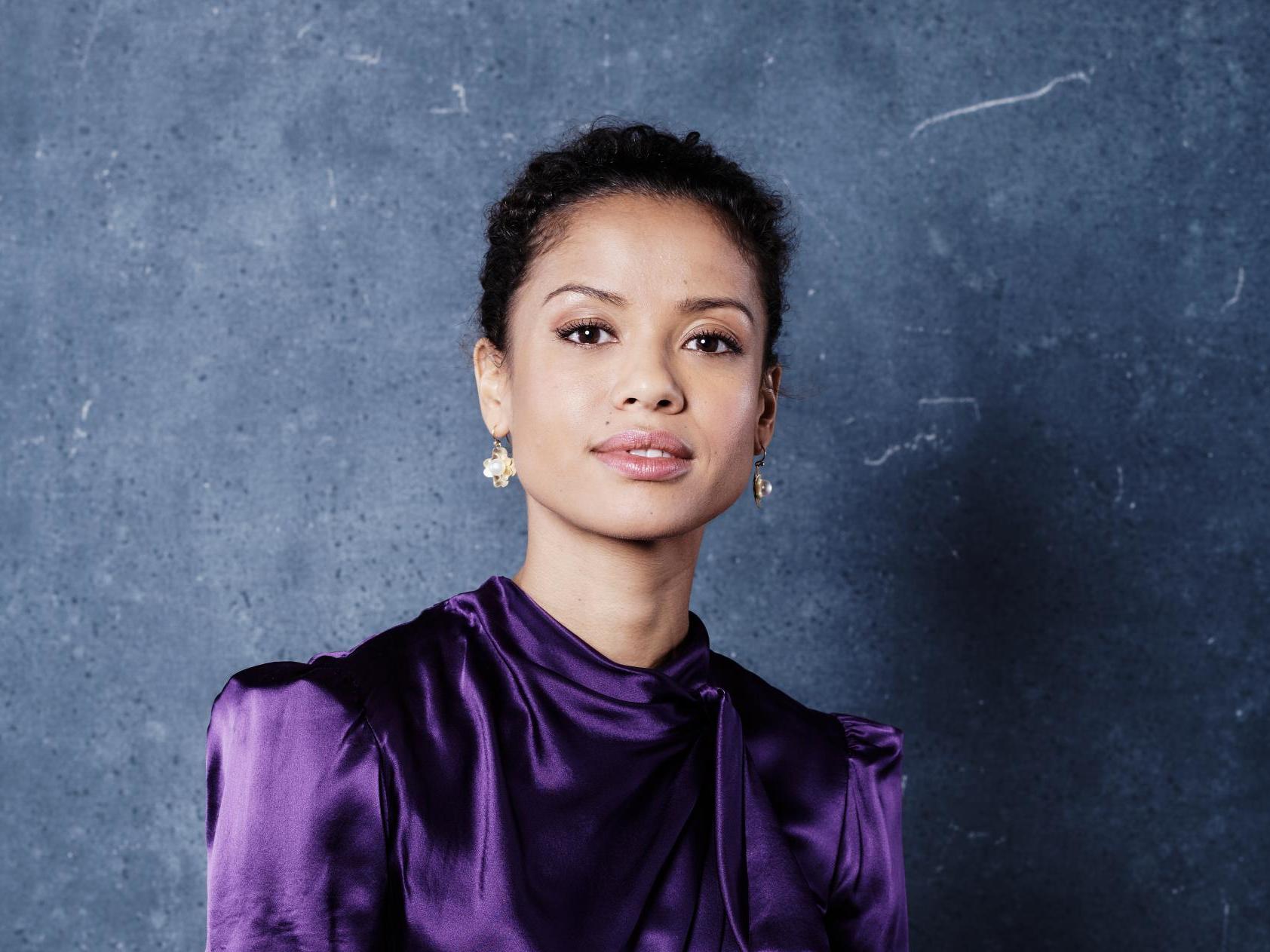
Gugu Mbatha-Raw has a laugh that feels like winning. It breaks out of her like an egg thrown against a wall – big and cackling, with the sort of unbound joy that has you desperate to make it happen again. But when she’s not laughing, she has the composed reserve of a politician. Or a beauty queen.
That’s her latest role – as Jennifer Hosten, aka Miss Grenada, in Misbehaviour. The Phillipa Lowthorpe-directed drama follows the 1970 Miss World competition, which had its rampant objectification of women disrupted when feminists invaded the stage, throwing flour bags at sleazy host Bob Hope and chanting, “we’re not beautiful, we’re not ugly, we’re angry”. A long fight saw the Women’s Liberation movement screaming, struggling and spitting their way in and out of police cells, until feminism was solidified into a more mainstream movement.
The film is the reason we are sat together in a London hotel room. Coronavirus means the Oxfordshire-born star of Belle (2013) and Black Mirror (2016) is not doing handshakes, so we wave at each other from the three-foot gulf between two ornately patterned sofas. She drapes herself over hers like a Dali clock, her legs curled to the side in front of a half-eaten plate of blackberries, her skin so glowy I imagine Glossier is trying to bottle up her magic formula as we speak.
“I always used to think of feminism as something that happened in the past,” she says. “But with what’s been going on in the last few years, you see how much still has to change.” The 34-year-old has been a part of #TimesUp since its inception, was sent by the UN on missions to meet refugees, and has been a vocal critic of the whitewashing of the film industry. “I am a feminist”, she continues. “I just didn’t really know I was.”
Mbatha-Raw is no stranger to activism, but working on the film, she says, “made me appreciate how difficult it would have been to get the media’s attention pre the internet. Banners, slogans, and graffiti is one way, but actually hijacking a live TV programme – the most-watched TV programme in the world... I mean, it was such a big deal. It was so bold what those women did, so brave. Their hearts must have been racing. I mean, just to really go through with it.”
Where does she stand on beauty pageants? “I hadn’t given them much thought before,” she admits. “I would dismiss them as vacuous or superficial.” But during filming, she went to Grenada to meet the real Jennifer Hosten for breakfast. “Speaking to her, I was able to better understand her motivations, that depending on your background, for some women, it was a stepping stone to greater things.” They got on so well that Hosten sent her the gold embroidered crochet dress that she wore during the actual Miss World competition.
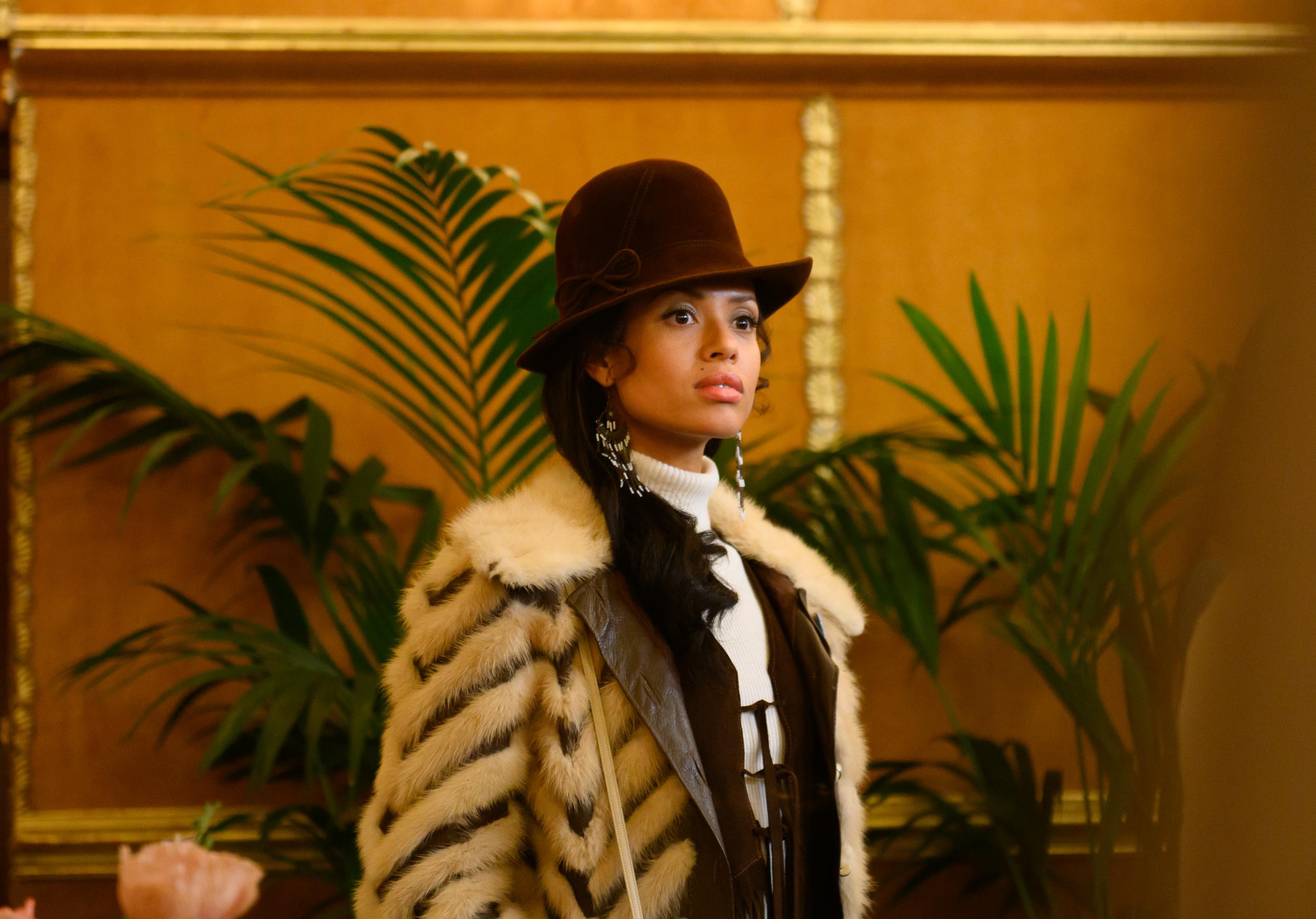
Given their blatant lack of recognition for women directors, or non-white actors, will she be throwing flour bags at the next Oscars? “In award ceremonies, increasingly, actors are using their platforms to raise issues,” she explains, her voice veering into the sort of democratic head girl tone that gives you the sense that she’d rather not offend anyone. “There was Joaquin Phoenix’s Oscar speech. I think it’s important when you get a platform to use it for something you care about.”
Given that the film industry is so dominated by male directors, Mbatha-Raw has managed to work with a lot of women. Her career choices read like a sentient version of Natalie Portman’s female director-emblazoned Dior cape. Is this a concerted effort or do women just offer her more interesting roles?
“It’s selfishness really,” she sighs, sliding so far off the sofa cushion that if she wasn’t so elegant, I would worry she might slip onto the floor. “As an actor, I want to play nuanced, three-dimensional characters, so I tend to gravitate towards people who offer me that. I haven’t exclusively sought out women but I actually have found that the work is often very satisfying. Hopefully, working with female directors will become so normal that they won’t be ‘female directors’, they will just be ‘directors’.”

Watch Apple TV+ free for 7 day
New subscribers only. £9.99/mo. after free trial. Plan auto-renews until cancelled.
ADVERTISEMENT. If you sign up to this service we will earn commission. This revenue helps to fund journalism across The Independent.

Watch Apple TV+ free for 7 day
New subscribers only. £9.99/mo. after free trial. Plan auto-renews until cancelled.
ADVERTISEMENT. If you sign up to this service we will earn commission. This revenue helps to fund journalism across The Independent.
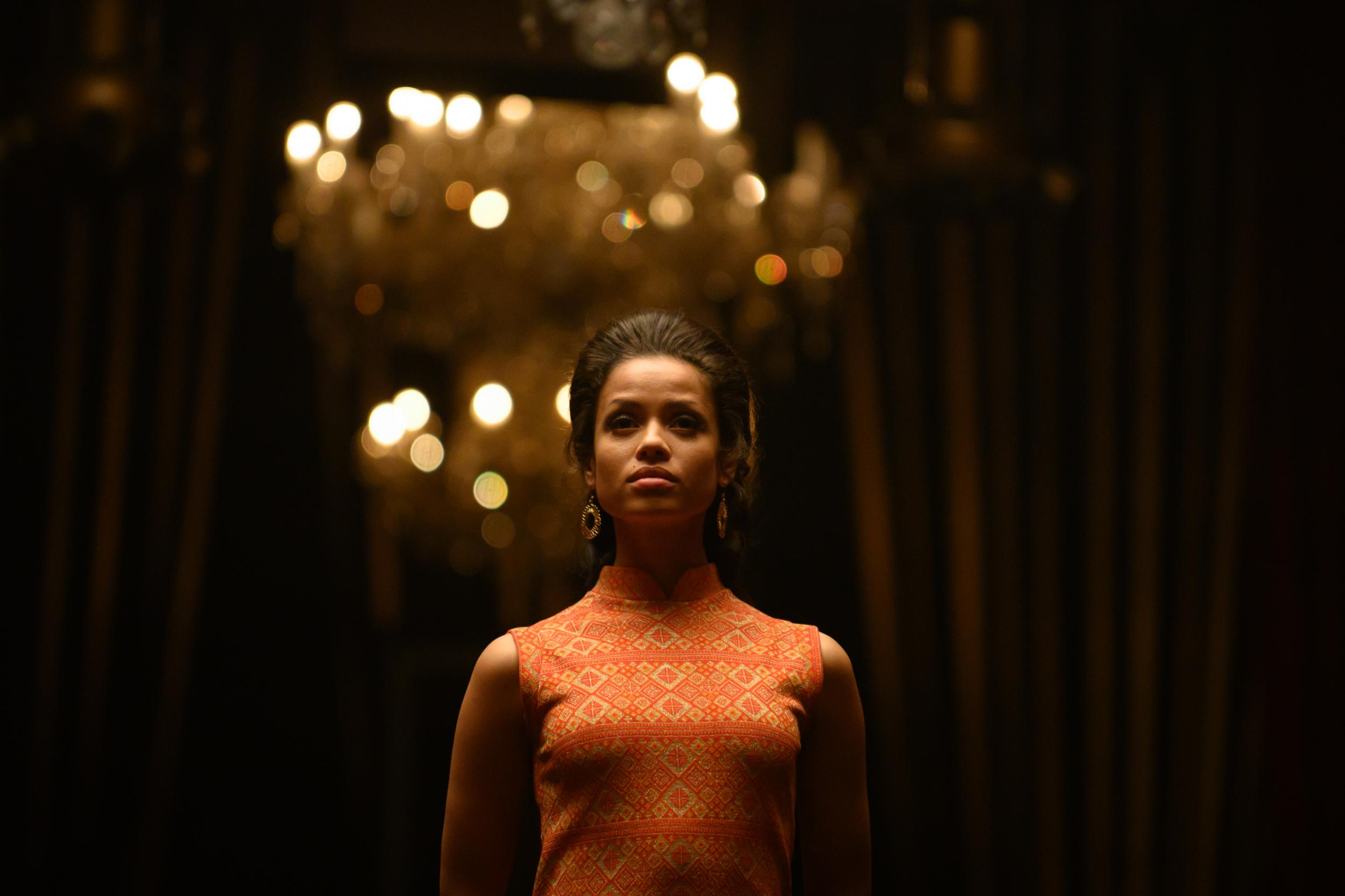
In the case of Misbehaviour, having a woman directing feels particularly pertinent, given how many scenes could have come across as seedy in the wrong hands. At one point, the contestants are instructed to turn around so that the judges can rate their behinds out of ten. Though she didn’t “relish having to squeeze into a white swimming costume”, Mbatha-Raw says she “knew that the scene was coming from the women’s point of view so it wasn’t going to be objectifying”.
A woman, Mimi Leder, directed the pivotal final episode of The Morning Show, too. Mbatha-Raw played junior talent booker Hannah in the Golden Globe-nominated TV drama. While initially, Hannah seems hostile to the sexual assault accusations levelled against her boss, the fictional news anchor Mitch Kessler (Steve Carell), as the series progresses, it becomes clear she too suffered under his hands.
In a particularly harrowing scene, the audience is shown a flashback to Hannah’s sexual assault, wherein her violator misinterprets her silence as willingness. It’s a jarring rebuttal to those who often ask, “Why didn’t you fight back? Why didn’t you run away?” As the series shows, there’s often no “you” at that point. Victims become completely disassociated from their bodies.
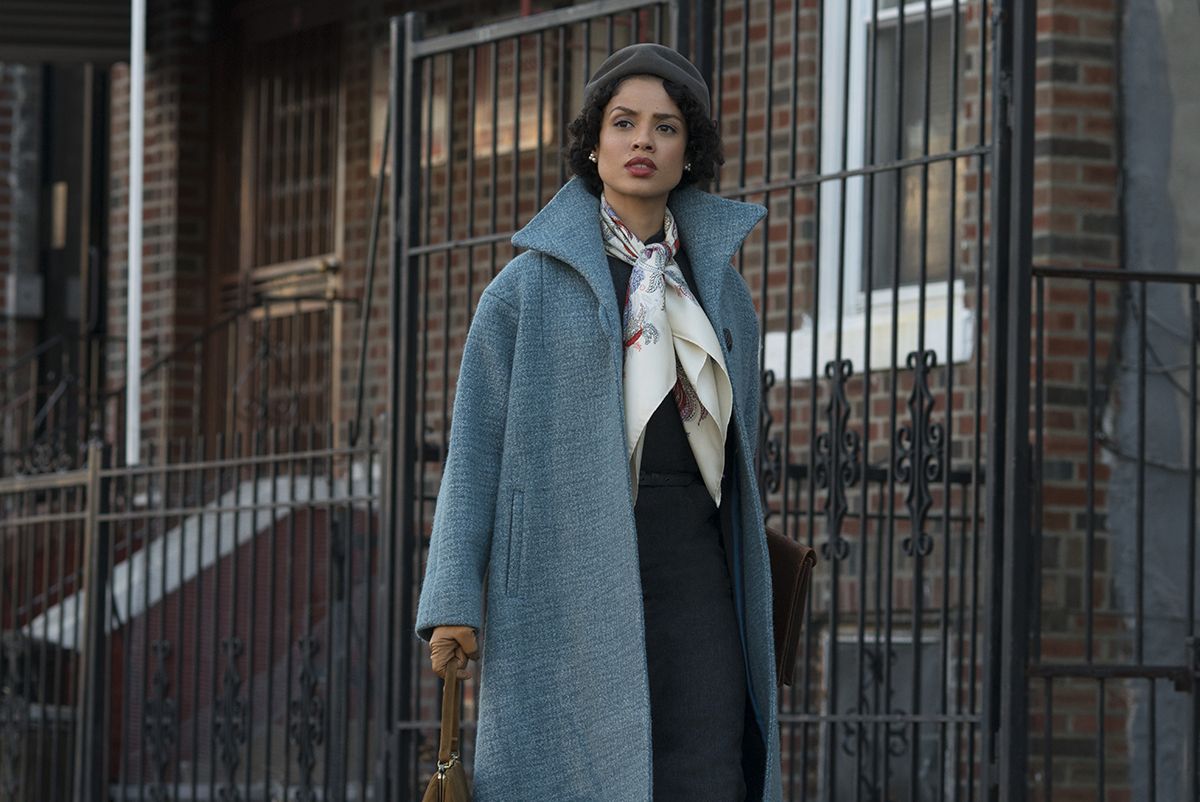
Since the series aired, a number of survivors have messaged Mbatha-Raw to say that the storyline has given them a new perspective on their experience. One wrote to her: ”Thank you for bringing this story to life and helping our society understand ... how varied women’s experiences with rape and assault can be. You’ve helped me immensely in my healing process.”
In an interview earlier this year, Mbatha-Raw said she thought Harvey Weinstein should watch The Morning Show. What does she think he would learn if he did? “Oh gosh.” She bites her matte red lip. Then she decides it’s not worth keeping it bitten. “Maybe he would learn to have a bit more perspective and empathy and compassion for the women in those situations. A bit more understanding of the power that he was wielding.”
That’s all she has to say about that, so the conversation returns to Misbehaviour, and a storyline that was close to the bone. Though she plays Miss Grenada, her character befriends South Africa’s black contestant Pearl Jansen. Mbatha-Raw’s father was born in South Africa but fled during the apartheid to escape racial persecution. “I was amazed to discover that South Africa actually sent two contestants to the Miss World competition,” she says. “They sent a white Miss South Africa and a black Miss Africa South – as an afterthought, basically, just to appease the protesters. When you think about it, it sounds so absurd.”
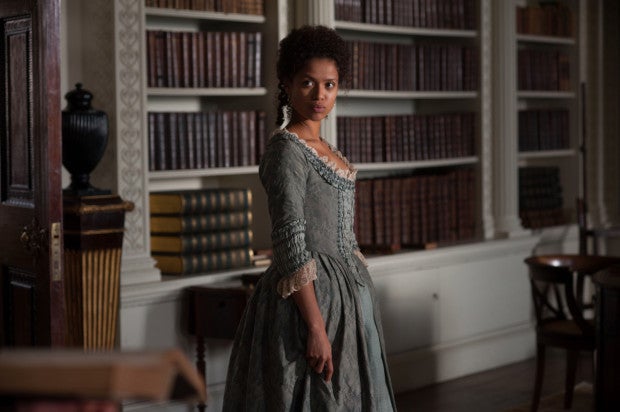
A few years ago, Mbatha-Raw was able to visit South Africa for the first time. During her trip, she climbed Table Mountain, gazed out of the window of the blue train as it juddered past Cape Kuru, and met friends and family she’d never gotten to speak to before. “Because of the way I was bringing two halves of the family together, they called me The Unifier,” she laughs. “The trip was amazing.”
I ask her what she likes to do in her spare time and she seems aghast that anyone would care. “Baths? I drink a lot of tea? I guess I go to dinner with friends?”
You wouldn’t think it from her rather bemused responses to questions about her personal life, but ever since she graduated from Rada (the Royal Academy of Dramatic Arts), Mbatha-Raw has been creeping towards invited-to-the-Kardashian’s-latest-baby-shower levels of fame. She’s had lunch at Oprah’s house, won an MBE and is about to be in Marvel’s Loki alongside Tom Hiddleston.
Much of her work thus far has taken the form of big-hearted morality tales. In her breakout role, she played Dido Belle, the illegitimate daughter of the Earl of Mansfield who rallied behind the work of slave abolitionists. In Edward Norton’s Motherless Brooklyn (2019), she played Laura Rose, a lawyer and community activist campaigning against racial discrimination. And next year, she will play pioneering nurse Mary Seacole, whose work treating soldiers on the frontline of the Crimean War has always been overshadowed by the legacy of Florence Nightingale.
But while a lot of her roles are political in some way, Mbatha-Raw emphasises that it’s important for black women to also be given roles where they don’t have to fight. “True equality is being able to do anything and everything.”
There’s that laugh again. It breaks out of her soft, rolling Queen’s English like broken glass. “There are many different ways to resist.”
Join our commenting forum
Join thought-provoking conversations, follow other Independent readers and see their replies
Comments
Bookmark popover
Removed from bookmarks